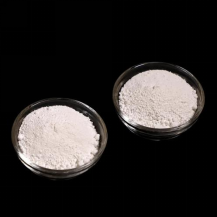
10 月 . 13, 2024 04:22 Back to list
Wholesale Titanium Dioxide Applications in Plastic Manufacturing and Industry Trends
The Role of Wholesale TiO2 in the Plastic Industry
Introduction
Titanium dioxide (TiO2) is a vital pigment in various industries, and its role in the plastic sector is increasingly prominent. As an essential component, TiO2 is utilized primarily for its excellent pigmenting properties and capabilities to enhance the physical properties and durability of plastic products. This article explores the significance of wholesale TiO2 in the plastic industry, its applications, benefits, and the factors influencing its demand.
Understanding Titanium Dioxide
Titanium dioxide is a white, opaque substance that is known for its brightness and high refractive index. It is derived from minerals like ilmenite and rutile, with the latter preferred for its higher purity. The production of TiO2 involves various methods, including the sulfate and chloride processes, which yield the necessary purity levels for industrial applications. In the plastics sector, TiO2 is primarily used as a white pigment to provide opacity and brightness.
Applications in the Plastic Industry
TiO2 is widely used in various types of plastics, including polyvinyl chloride (PVC), polyethylene (PE), polypropylene (PP), and polystyrene (PS). Its primary application is in the formulation of colored and white plastics, where it enhances the aesthetic appeal and provides UV protection.
1. Packaging Materials In the packaging industry, TiO2 is used in films, containers, and bags. It not only contributes to the overall whiteness and brightness of the packaging but also protects the contents from ultraviolet (UV) degradation. This protection is crucial for food and beverage packaging, ensuring that the quality and safety of the products are maintained over time.
2. Automotive Components The automotive industry utilizes TiO2 in the production of various plastic components. The inclusion of TiO2 enhances the durability and weather resistance of parts exposed to environmental factors, thereby extending the life of automotive components.
3. Consumer Goods Plastic household items, toys, and electronic casings often incorporate TiO2 for aesthetic and functional reasons. The bright white color improves visual appeal, while its UV resistance helps prevent discoloration and degradation over time.
4. Medical Applications In the healthcare sector, TiO2 is utilized in plastic components of medical devices, providing necessary color and stability while also ensuring that products meet stringent health and safety standards.
Benefits of Using TiO2 in Plastics
wholesale tio2 used in plastic

The incorporation of TiO2 into plastic formulations offers several benefits
1. Enhanced Opacity and Brightness TiO2 provides outstanding whiteness and opacity, ensuring that plastic products appear visually appealing and are effectively opaque.
2. UV Protection TiO2 acts as a UV stabilizer, protecting plastics from the harmful effects of UV radiation, which can cause fading and deterioration.
3. Improved Durability The use of TiO2 can enhance the physical properties of plastics, increasing their resistance to wear and tear, which is crucial for products subject to mechanical stress.
4. Versatility TiO2 can be used in a wide range of plastic applications, making it a versatile additive for various industries.
Factors Influencing Demand
The demand for wholesale TiO2 in the plastic industry is influenced by several factors
1. Market Growth The growth of the plastics market directly impacts TiO2 consumption. As emerging economies continue to industrialize and demand for plastic products increases, the need for TiO2 follows suit.
2. Sustainability Trends An increasing emphasis on sustainable practices is reshaping the plastic industry. Companies are looking for materials that not only enhance performance but are also eco-friendly. Innovations in TiO2 production, such as reduced carbon footprints, are becoming critical.
3. Technological Advances Continuous advancements in TiO2 manufacturing processes lead to better quality pigments with improved performance characteristics, driving demand in various applications.
Conclusion
Wholesale TiO2 plays a crucial role in the plastic industry by enhancing the aesthetic and functional properties of plastic products. Its applications are vast, ranging from packaging to consumer goods, medical devices, and automotive components. As the demand for plastics continues to grow, so too does the significance of TiO2 in ensuring that these products meet consumers' needs for performance, durability, and visual appeal. The evolution of the industry towards sustainability promises to further enhance the importance of TiO2, marking a continuing trend in its utilization within the plastic sector.
-
Lithopone for Plastic & TiO2 R-5568/SK-6658 Masterbatch Solutions
NewsMay.30,2025
-
China Leading Rutile TiO2 Manufacturer - R5566 & R996 Grades Available
NewsMay.30,2025
-
High-Purity Anatase & Rutile TiO2 Powder Trusted Manufacturer
NewsMay.30,2025
-
High-Purity Anatase Products Trusted Supplier & Manufacturer
NewsMay.29,2025
-
Best Price Eco-Friendly Rutile TiO2 Supplier & Wholesale Factory
NewsMay.29,2025
-
Chinese Anatase Titanium Dioxide for Ceramic Glaze Reliable Supplier
NewsMay.29,2025
